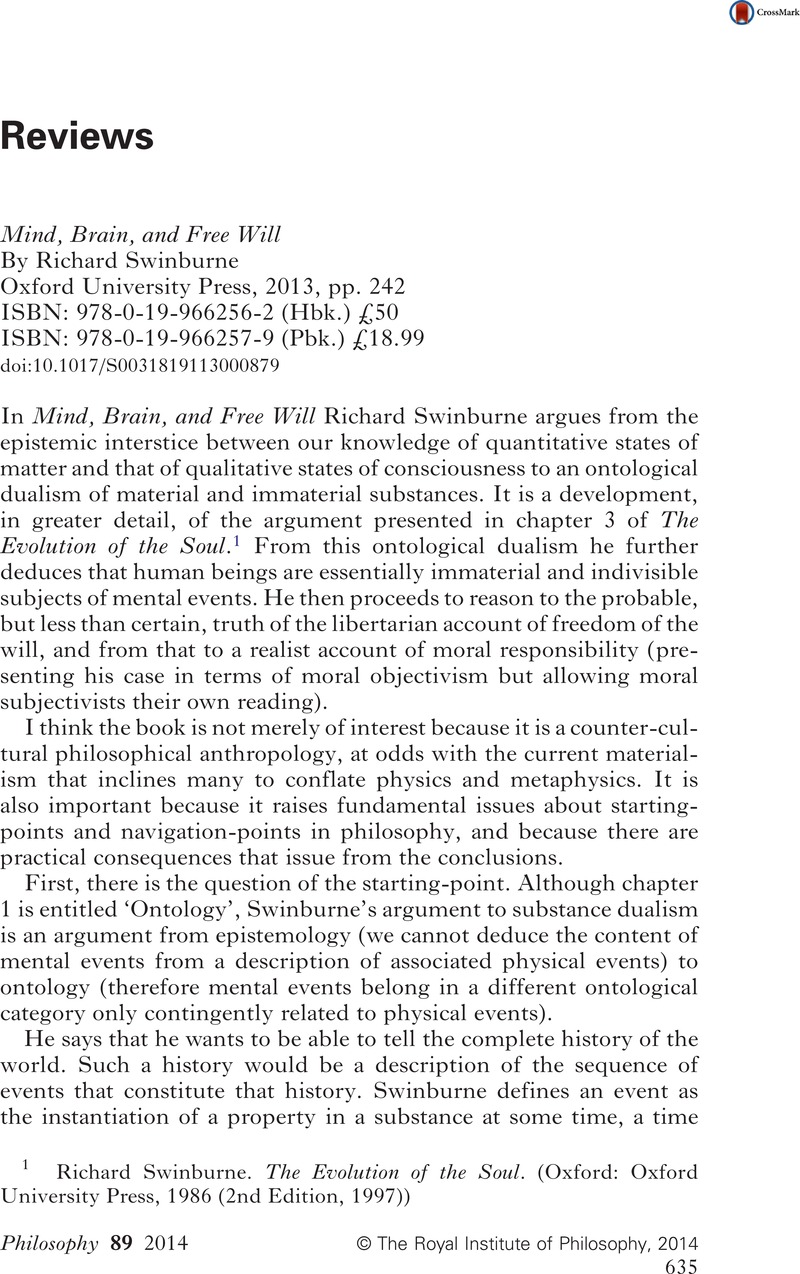No CrossRef data available.
Published online by Cambridge University Press: 22 January 2014

1 Swinburne, Richard. The Evolution of the Soul. (Oxford: Oxford University Press, 1986 (2nd Edition, 1997))Google Scholar
2 Op. cit.
3 I was first stimulated to think this by reading Flew, A. G. N.. A Rational Animal (Oxford: Blackwell, 1975)Google Scholar. What I have here called Swinburne's ‘tidy-minded folk psychology’ I used to provide a conceptual framework within which a number of more common, and effective, clinical interventions for mental disorders can be ordered even though they are derived from competing psychological models: Holdsworth, Nicholas. ‘From psychiatric science to folk psychology: an ordinary-language model of the mind for mental health nurses’ Journal of Advanced Nursing 21 (1995) 476–486CrossRefGoogle ScholarPubMed. Professional philosophers may be comforted, or alarmed, at how their theoria can come to guide praxis outside their academies.
4 Swinburne, RichardSimplicity as Evidence of Truth (Milwaukee, Wisconsin: Marquette University Press, 1997)Google Scholar.
5 Op. cit. first edition (1986) 154 and Additional Note 2; second edition (1997) 154 and New Appendix C.